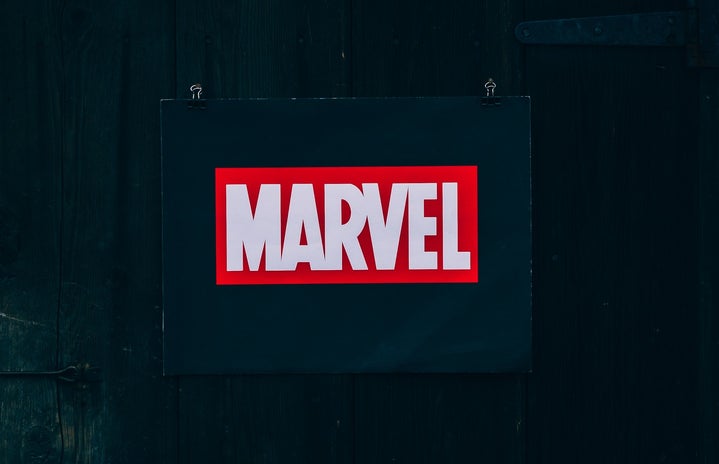Warning: This article contains spoilers for Black Panther: Wakanda Forever
These past few weeks, there’s been a continuous buzz on both news sources and social media regarding the newest Marvel Studios movie Black Panther: Wakanda Forever. Oftentimes, movie sequels don’t always live up to the hype of the first movie’s release, but this movie surpasses expectations with its highly emotional, tear-jerking, and action-packed storyline. Let me just say, I was crying uncontrollably by the end of the movie.
Queen Ramonda, Shuri, M’Baku, and Okoye fight to protect the kingdom of Wakanda from intervening world powers as they mourn the death of King T’Challa. The Wakandans strive to embrace their next chapter without the protection of The Black Panther. Meanwhile, invading forces from around the world target Wakanda’s vibranium, unleashing chaos. It becomes the duty of Shuri, M’Baku, Nakia, and Okoye to defend the nation, especially when a mysterious Mexican civilization emerges from the depths of the sea.
Directed by Ryan Coogler with a screenplay by Ryan Coogler and Joe Robert Cole, Black Panther: Wakanda Forever is a tribute to the original Black Panther star Chadwick Boseman who devastatingly died of cancer in 2020. The actor left a huge mark on the production team, raising the question of if a second movie should even be made after his death. Through their grief, the directors decided it would be best to empower the Black Panther by continuing Boesman’s story through the film Wakanda Forever.
About a year ago, when the sequel was said to be released, there was talk about who would be the next Black Panther. My prediction was that Shuri, T’Challa’s sister, would become the next Black Panther. To my amazement, my prediction was correct. Of course, I wasn’t sure how it would happen, but what better way to introduce a new powerhouse superhero than to reveal a female Black Panther. Recently, in the Marvel Universe, characters have been passing off their powers or, unfortunately, dying off. Some say it’s because Marvel is trying to start a new era of superheroes, and others say it’s because the actors’ contracts are ending and they’re looking for new jobs. Nevertheless, I’m excited to see what Marvel has in store for the upcoming 2023 releases.
What stood out to me the most about the movie was that there was a good bit of cultural symbolism, and the women of Wakanda completely dominated the film, giving them a heavier influence on the plot as a whole. The movie dug into Latin American and Indigenous history with the implementation of a Mexican colony down at the bottom of the sea. The casting directors even made sure to cast Latinx actors to portray the roles on screen. The writers did a wonderful job at representing parts of minority cultures in one of the most famous Marvel movies of all time. I loved how the story’s foundation was rooted in the history of mothers who wanted to protect their children.
The women in this movie were, hands-down, the best part. First of all, can we talk about how Shuri (Letitia Wright), Nakia (Lupita Nyong’o), Okoye (Danai Gurira), and Ironheart (Dominique Thorne), are an absolute powerhouse team? I’m pretty sure I was in the movie theater crying just from sitting there and looking at those beautiful, strong, black women for two hours and forty-one minutes straight. But, in all seriousness, Shuri as the new Black Panther is everything I’d ever hoped for. Her new version of the character shows the empowerment and strength of educated women. Throughout the movie, Shuri is coping with the death of her dearly beloved brother and then has to manage the unexpected and devastating death of her mother, Queen Ramonda. The hurt and pain drives her to match the Black Panther’s DNA and become the Black Panther herself. Even Nakia and Okoye are given more prominent roles as loyal Wakandan fighters, risking their lives for their culture. I was also highly impressed with the representation of Ironheart, a young black female engineer who attended the Massachusetts Institute of Technology (MIT). Rather than making the “famous vibranium detector engineer” a black man, the writer purposefully made the decision to make it a young woman. If that’s not attention to detail, then I don’t know what is.
The part of the movie that absolutely broke me was at the end, when Shuri finally accepts the death of T’Challa and burns his funeral garment in a fire, symbolizing her release of guilt and grief, and displaying the ascension of the ashes into the sky as T’Challa is peacefully at rest. The movie theater is then serenaded with Rihanna’s voice as she sings “Lift Me Up,” with images and past clips of Chadwick Boseman flashing up on the screen. Now, that’s not even the part that really got me. It was when Nakia, T’Challa’s previous girlfriend, meets back up with Shuri on an isolated beach with a child, who she reveals to be T’Challa’s son. At the end of the movie, the little boy speaks, saying, “I am Prince T’Challa, son of King T’Challa,” the camera pans to Shuri smiling, and then fades to black. This is so symbolic because in real life, Boseman prepared his family for his death, keeping it a secret from the world but allowing the people closest to him to know, allowing them to grieve in advance. The writers strategically wrote this into the script to evoke a personal and emotional connection to both the cast and the audience.
In my opinion, everything about this movie is absolutely perfect, down to the characters, the actors, the script, the music, and the inclusion of Boseman’s legacy. And honestly, as an unpopular opinion, I believe this movie is even better than the first.


